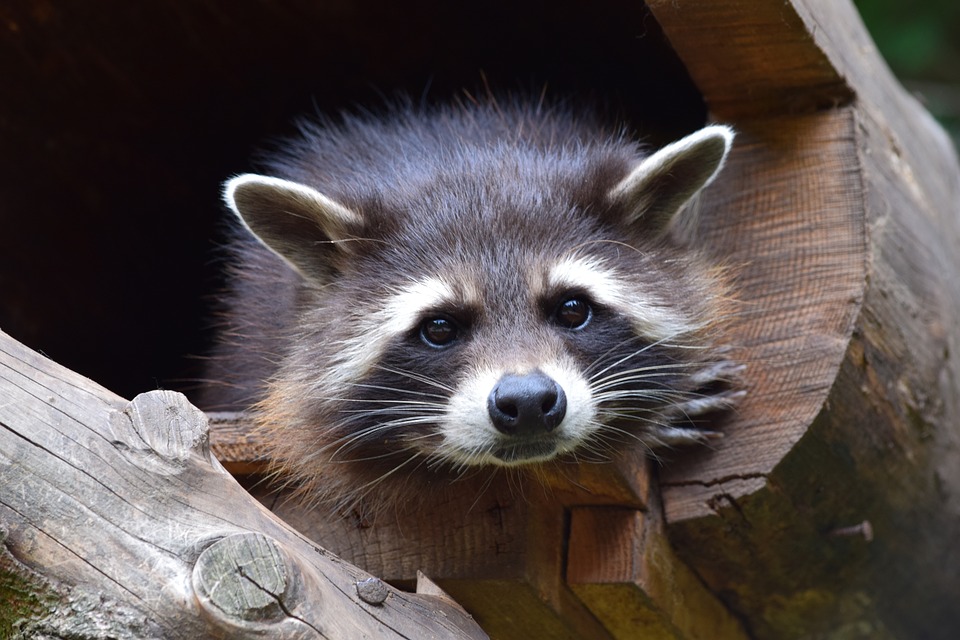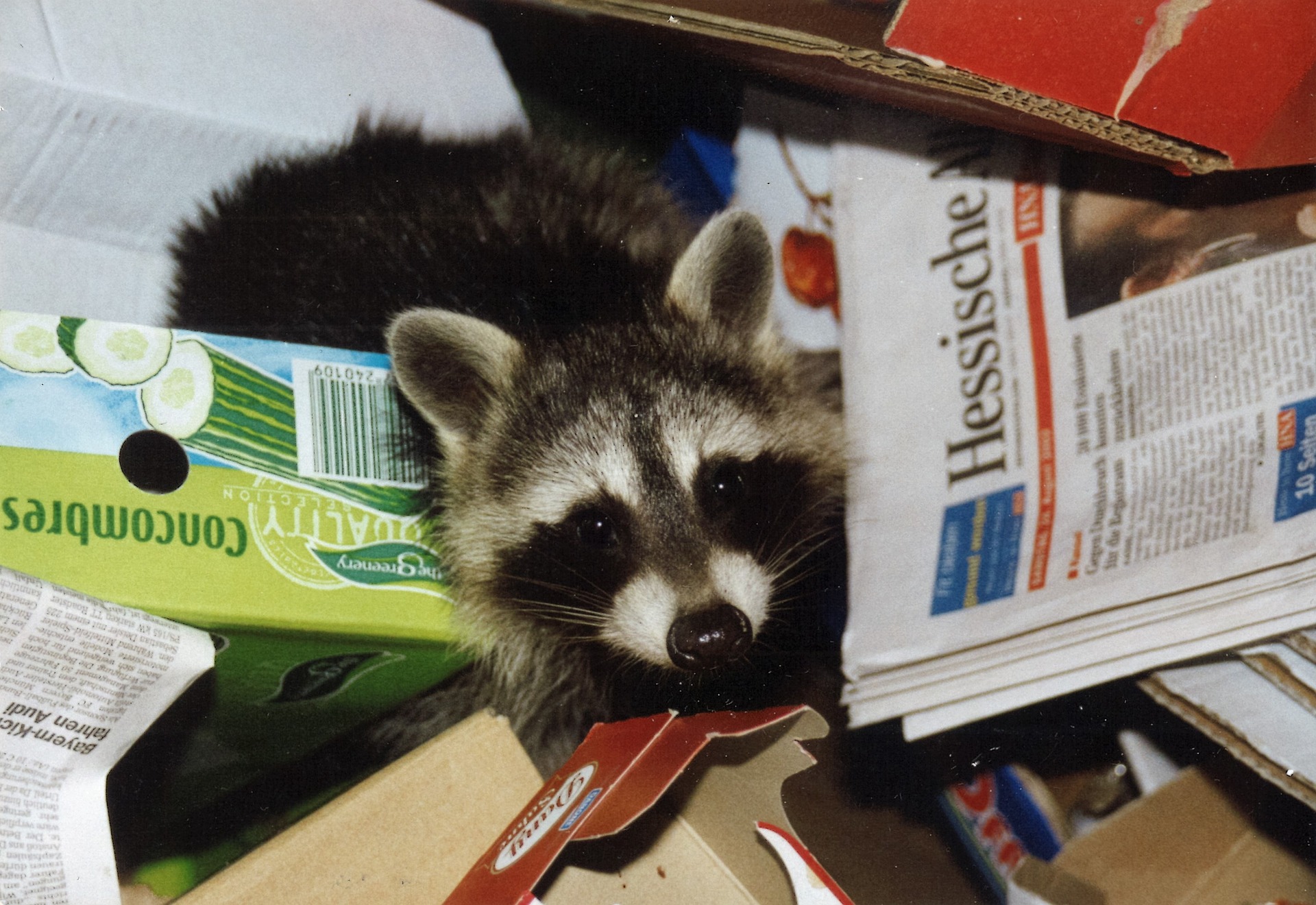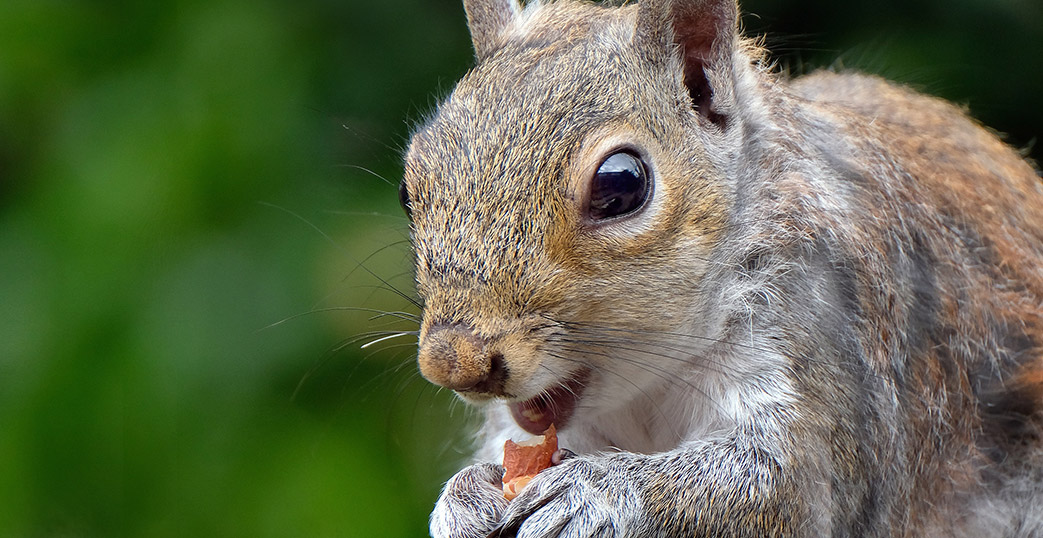Raccoon Control and Removal Across Western New York
Protect Your Home from Unwanted Pests
Raccoons are nocturnal animals that live throughout North America. They are a highly adaptable species, allowing them to thrive in almost every environment, including urban and residential areas. They are considered nuisances not only due to their opportunistic feeding habits, which lead them to dig through garbage cans and destroy gardens, but also due to their damage to structures while looking for suitable denning areas and their ability to spread disease.
Once you've discovered a raccoon in your home, find a team you trust in Western New York. Trust Witzend Wildlife to complete raccoon control.

About Raccoons and Their Removal
Learn all about what happens when raccoons invade your home and about Witend Wildlife's raccoon control and removal. Review the signs and what attracts them; ensure that you protect your home from the danger and damages they can cause.
 Appearance
Appearance
These mammals are known for the distinct black bandit-mask markings on their faces. They weigh 10 to 30 pounds and grow up to 3 feet long, with long bushy tails. Raccoons have dense, grayish-brown fur and a series of distinctive black rings on their tails.
 Diet
Diet
Raccoons are omnivorous and opportunistic feeders, meaning they will eat just about anything within their reach. Typical meals include crayfish, frogs, turtles, fish, mice, insects, eggs, fruits, vegetables, nuts, and whatever they can scavenge from carrion and trash piles. They often use vegetable gardens, unsecured garbage cans, pet food left outdoors or in the garage, and even bird feeders.
 Habitat
Habitat
Forests, marshes, and wooded areas near human habitations are ideal raccoon habitats. They prefer to live near a water source, such as a stream, lake, wetland area, or slow-moving river, but are highly adaptable and can thrive in just about any environment. They make dens in hollowed trees, rock crevices, attics, chimneys, and abandoned dens of other wildlife.

 Problems and Damage
Problems and Damage
Wherever there are acceptable food sources, raccoons will set up denning sites. Residents may inadvertently invite raccoons into their yards by leaving pet food outdoors overnight or not sealing trash bins with lids, which can lead to them denning on or near the property. When raccoons decide to den in attics, they can cause significant property damage.
The animals tear up the roofing and damage vents to gain entry. In addition to rabies, raccoons spread diseases and parasites like raccoon roundworm, tularemia, Giardia, Salmonellosis, and Leptospirosis. They also destroy home gardens, bird feeders,and make messes of trash cans and garbage bins.
 Prevention and Exclusion
Prevention and Exclusion
We trap and remove the problem raccoon and exclude their entry points to prevent entry or re-entry into your home. This will help keep your home safe in the future and improve your peace of mind.
If you need raccoon control services for your home
Contact Witzend Wildlife Services today, or give us a call at (716) 982-3777.


